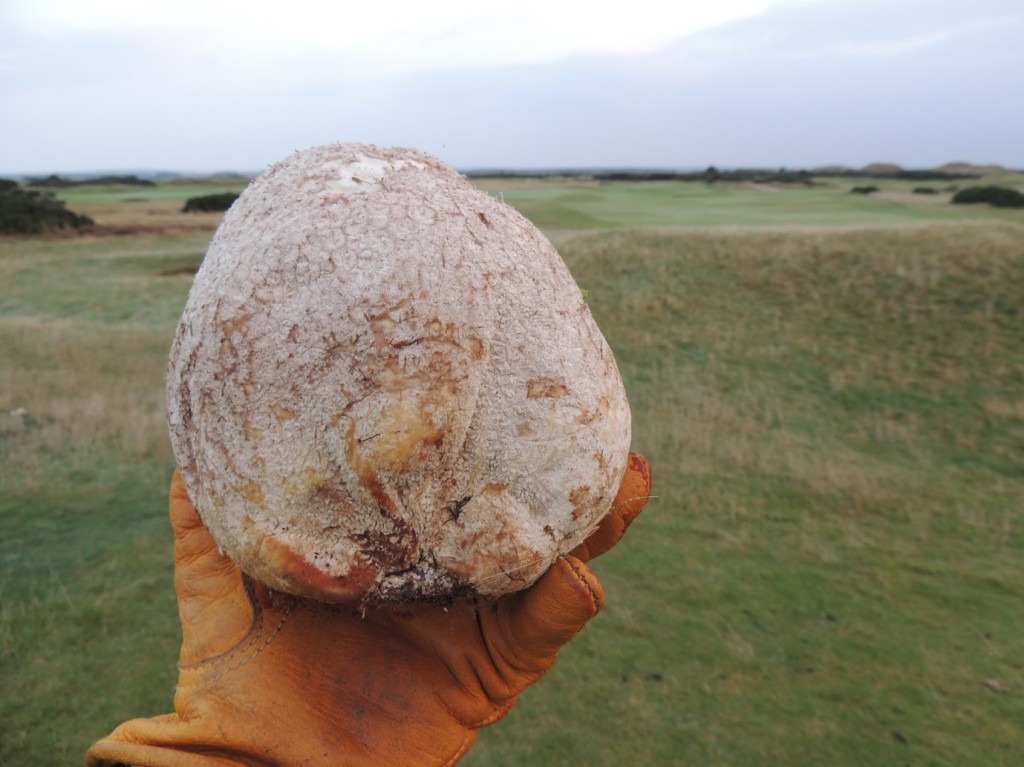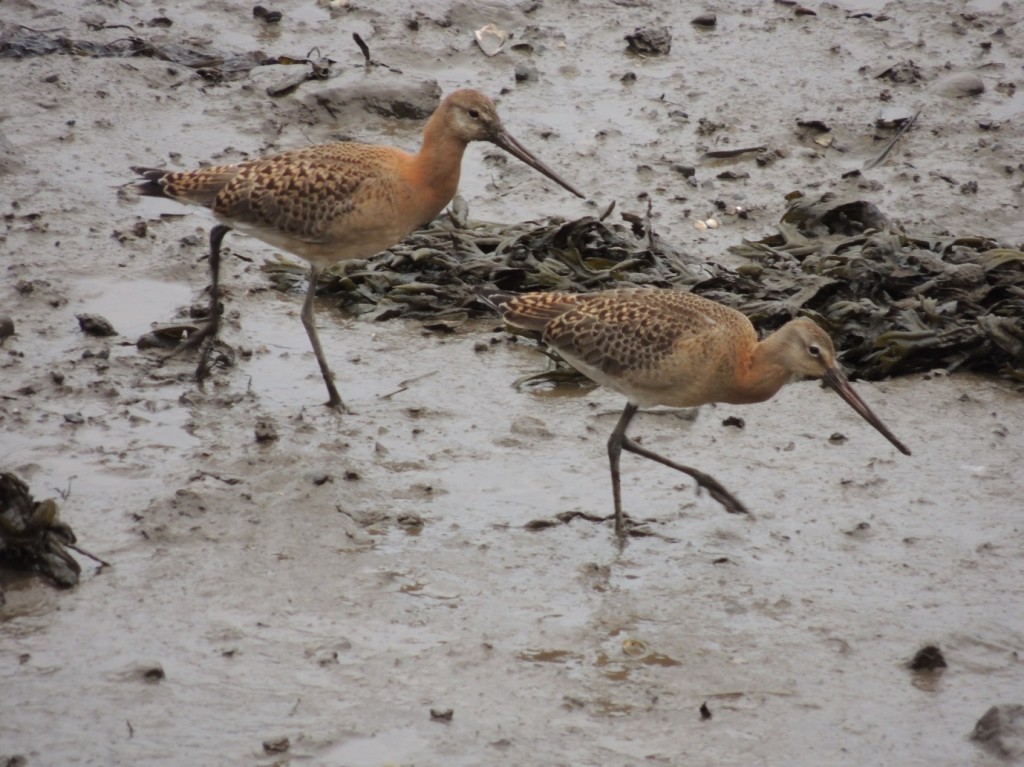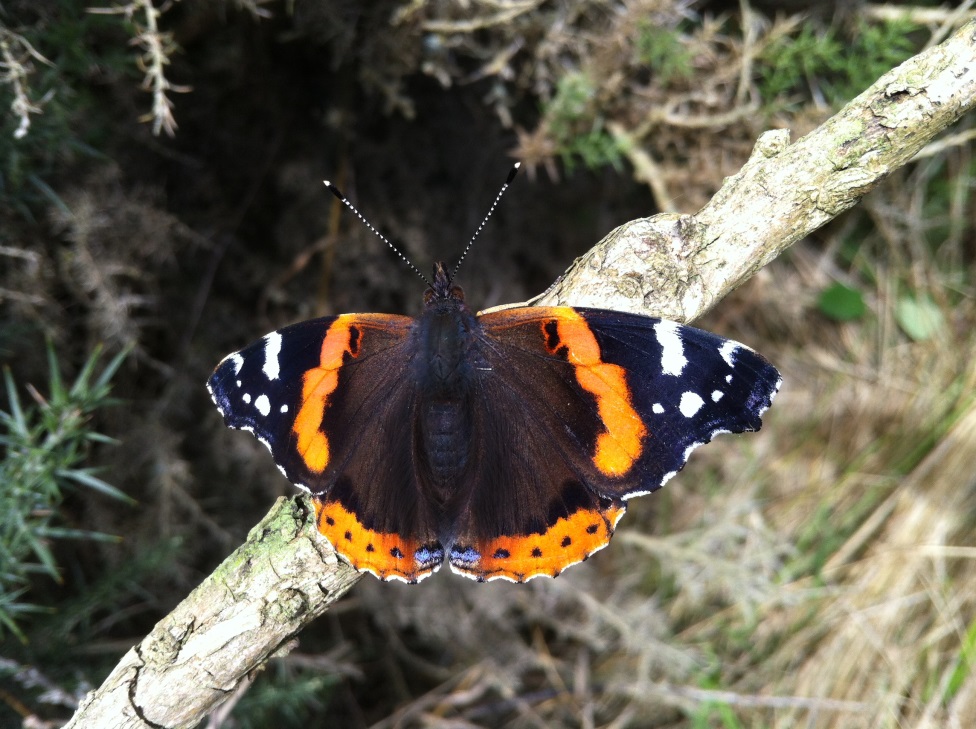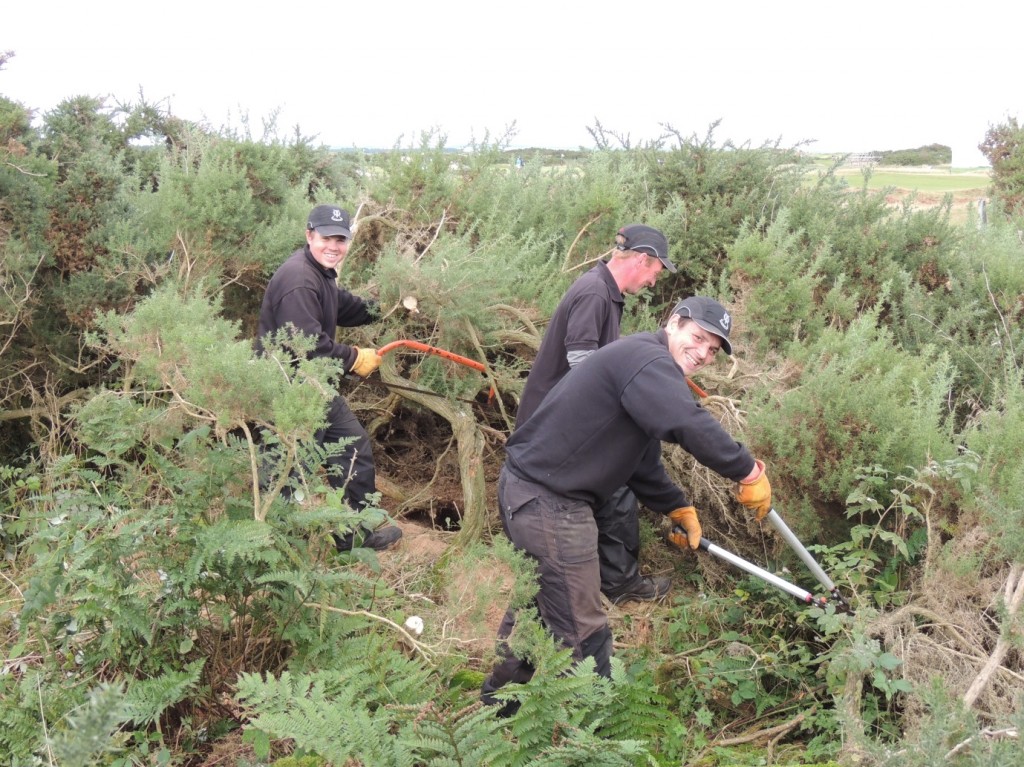
Fungus is vital to the ecological world as it helps break down decomposing grasses, leaves and wood by turning them into useable compost.
What fungi does for our courses
This week we have seen a smashing amount of fungi making its yearly appearance on the Links. Fungus is vital to the ecological world as it helps break down decomposing grasses, leaves and wood by turning them into useable compost – without fungus we would be up to our ears in all of the aforementioned materials! Not only that, if we had no fungi then we have no grass either as fungi creates a bridge from nutrients to roots thus allowing grass to grow properly.
Above: Giant puffball found on the 4th hole, Old Course.
The reddish mushrooms seen in the header image (living next to the 18th green of the Old Course) are simply the fruit of the fungus. The rest is in an underground network of strands called hyphae which can reach for many metres. They possess no chlorophyll so cannot create their own food via photosynthesis therefore have to tap into the roots of another organism for their sugars and carbs. In return they offer their host access to nutrients – ecology at work!
The birds have been showing themselves off this week on the Eden side of the Links with new sightings of bar-tailed godwits; the swallows have all but gone so get your thermals at the ready! There are a few butterflies in flight including this red admiral which showed up when we were coppicing gorse.
Above: Bar-tailed godwits
Above: Red admiral
In terms of environmental management, this week’s eco team have been nibbling away at the gorse again. The gorse management of the Links is based around a continual process of cutting to 150mm and then await regeneration, usually in about five years – then we start all over again.
This week’s eco team are (left to right) Jack, James and Colin and don’t they look happy in their work!
Words by James Hutchinson, Environmental Officer
Related Posts
Subscribe below for email updates on our latest posts
Subscribe






